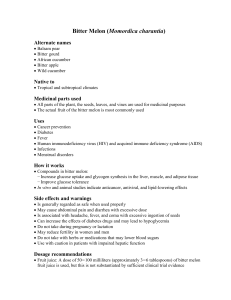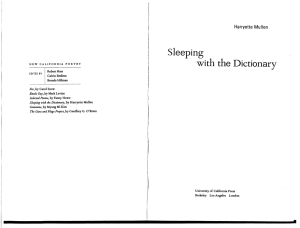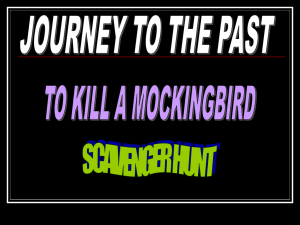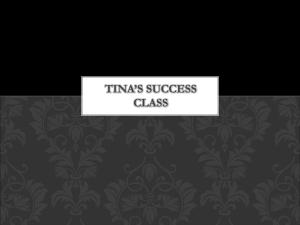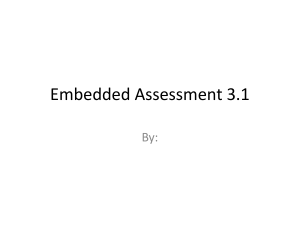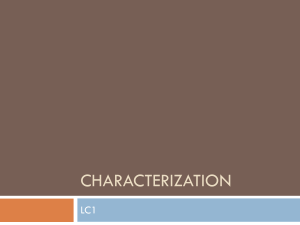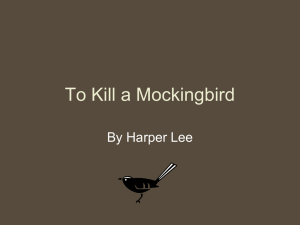To Kill A Mockingbird Web Quest
advertisement
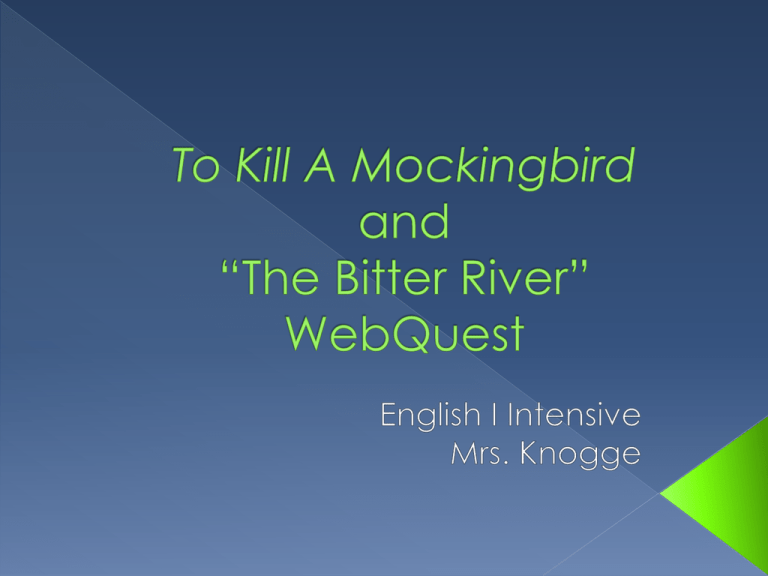
Racism is a common theme in literature. You have already been exploring this theme in Harper Lee’s To Kill a Mockinbird. This WebQuest will introduce you to another author’s treatment of this theme through poetry. Langston Hughes (1902 – 1967) was an African American poet. In his poem, “The Bitter River,” Hughes uses allusion and other literary devices to provide you with a powerful work of poetry that further illuminates this theme. Through research, using his poetry and what you have read in TKAM you will compare and contrast these two author’s treatment of the theme of racism. So, get ready to board a raft that will take you down “The Bitter River” and remember, “it’s a sin to kill a mockingbird.” You will visit three sites that will give you insight into references in Hughes’ poem. You will create a double-bubble map comparing and contrasting Maycomb’s usual disease and “The Bitter River.” Using your concept map you will write an essay that compares/contrasts “The Bitter River” and Maycomb’s usual disease. Research: visit the sites on the next slide Read: As a group we will read “The Bitter River” Re-read: the excerpt from To Kill A Mockingbird Create: a double-bubble map to help organize your writing Write: a four paragraph compare/contrast essay using textual evidence to support your writing Copy and paste the links below to a separate browser window and read the information or view the video about each of the subjects below that are mentioned in Hughes’ poem “The Bitter River”. Lewis Jones: http://www.spartacus.schoolnet.co.uk/TUlewisLM.htm Scottsboro Boys: http://www.schooltube.com/video/88c5c7e62c6d43bb 97d7/Scottsboro%20Boys%20trials Finally, log in to Discovery Education with your log on and search Jim Crow. View the video titled “Plessy and the Era of Jim Crow.” “What bothers me is that she and Jem will have to absorb some pretty ugly things pretty soon. I’m not worried about Jem keeping his head, but Scout’d just as soon jump on someone as look at him if her pride’s stake…” “Atticus, how bad is this going to be? You haven’t had much chance to discuss it.” “It could be worse, Jack. The only thing we’ve got is a black man’s word against the Ewells’. The evidence boils down to you-did –I didn’t. The jury couldn’t possibly be expected to take Tom Robinson’s word against the Ewells’. “You know, I’d hope to get through life without a case of this kind, but John Taylor pointed at me and said, “You’re it.” “But do you think I could face my children otherwise? You know what going to happen as well as I do, Jack, and I hope and pray I can get Jem and Scout through it without bitterness, and most of all, without catching Maycomb’s usual disease. “Why reasonable people go stark raving made when anything involving a Negro comes up, is something I don’t pretend to understand…I just hope that Jem and Scout come to me for their answers instead of listening to the town” (Lee 97). Use a double bubble concept map to diagram the similarities and differences between the poem “The Bitter River” and the passages in TKAM. Apply what you have learned from the websites you visited, “The Bitter River,” the excerpt from To Kill a Mockingbird and other evidence from chapters 9 and 11of To Kill a Mockingbird and write a four paragraph essay that compares and contrasts the poem “The Bitter River” and Maycomb’s usual disease. Introductory paragraph: 2 – 3 sentences that introduce your paper Use Jane Schaffer style for Paragraphs 2 & 3 Paragraph 2: 8 sentences that explain the similarities between the poem “The Bitter River” and the passages in TKAM. Don’t forget to use textual evidence to support your writing. Paragraph 3: 8 sentences that explain the differences between the poem “The Bitter River” and the passages in TKAM. Don’t forget to use textual evidence to support your writing! Paragraph 4: 3 – 4 sentences explaining what you have learned from this activity. Use the “Ideas” rubric located in the writing section of your binder to selfevaluate your essay. Make any changes you feel are necessary and then type your final essay. Due Date: To Be Announced Congratulations! You have just “climbed around in someone else’s skin and walked around in it. Now, you can better speak about the issue of racism as it relates to the two pieces of literature in this WebQuest. Go out and share what you learned! Remember, racism is a disease based in ignorance. Education is the cure for the disease. Discovery Education. Web. http://app.discoveryeducation.com/searc h?Ntt=Jim+Crow Spartacus Education. Web. http://www.spartacus.schoolnet.co.uk/TUle wisLM.htm Lee, Harper. To Kill a Mockingbird School Tubehttp://www.schooltube.com/video/88c5c7 e62c6d43bb97d7/Scottsboro%20Boys%20tri als
